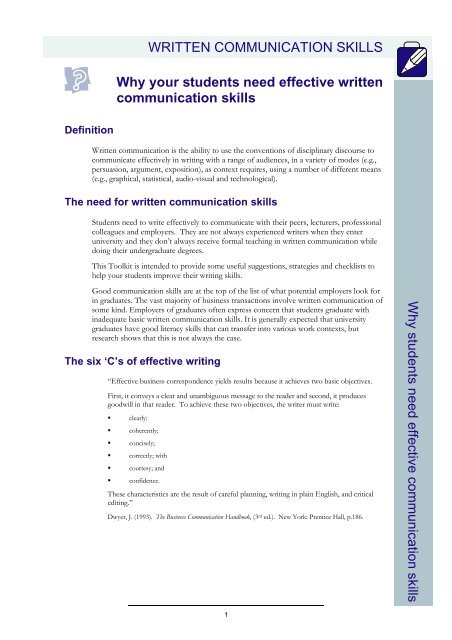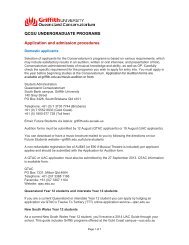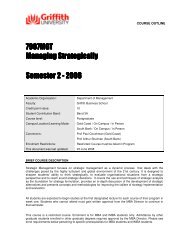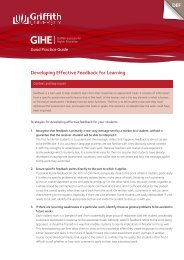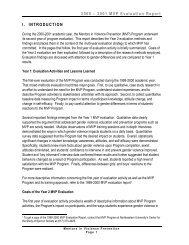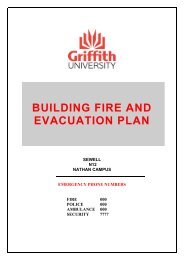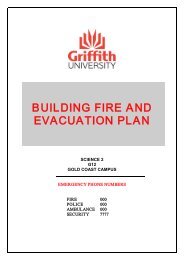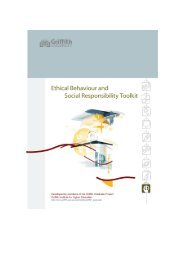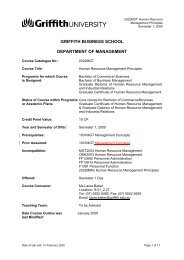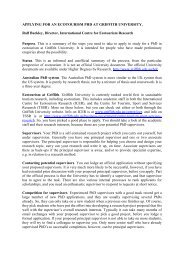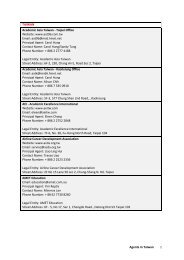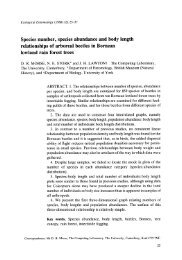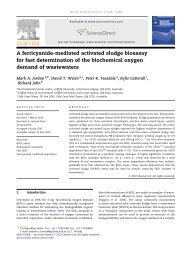Purpose of this Toolkit - Griffith University
Purpose of this Toolkit - Griffith University
Purpose of this Toolkit - Griffith University
Create successful ePaper yourself
Turn your PDF publications into a flip-book with our unique Google optimized e-Paper software.
WRITTEN COMMUNICATION SKILLS<br />
Why your students need effective written<br />
communication skills<br />
Definition<br />
Written communication is the ability to use the conventions <strong>of</strong> disciplinary discourse to<br />
communicate effectively in writing with a range <strong>of</strong> audiences, in a variety <strong>of</strong> modes (e.g.,<br />
persuasion, argument, exposition), as context requires, using a number <strong>of</strong> different means<br />
(e.g., graphical, statistical, audio-visual and technological).<br />
The need for written communication skills<br />
Students need to write effectively to communicate with their peers, lecturers, pr<strong>of</strong>essional<br />
colleagues and employers. They are not always experienced writers when they enter<br />
university and they don’t always receive formal teaching in written communication while<br />
doing their undergraduate degrees.<br />
This <strong>Toolkit</strong> is intended to provide some useful suggestions, strategies and checklists to<br />
help your students improve their writing skills.<br />
Good communication skills are at the top <strong>of</strong> the list <strong>of</strong> what potential employers look for<br />
in graduates. The vast majority <strong>of</strong> business transactions involve written communication <strong>of</strong><br />
some kind. Employers <strong>of</strong> graduates <strong>of</strong>ten express concern that students graduate with<br />
inadequate basic written communication skills. It is generally expected that university<br />
graduates have good literacy skills that can transfer into various work contexts, but<br />
research shows that <strong>this</strong> is not always the case.<br />
The six ‘C’s <strong>of</strong> effective writing<br />
“Effective business correspondence yields results because it achieves two basic objectives.<br />
First, it conveys a clear and unambiguous message to the reader and second, it produces<br />
goodwill in that reader. To achieve these two objectives, the writer must write:<br />
• clearly:<br />
• coherently;<br />
• concisely;<br />
• correctly; with<br />
• courtesy; and<br />
• confidence.<br />
These characteristics are the result <strong>of</strong> careful planning, writing in plain English, and critical<br />
editing.”<br />
Dwyer, J. (1993). The Business Communication Handbook, (3 rd ed.). New York: Prentice Hall, p.186.<br />
Why students need effective communication skills<br />
1


